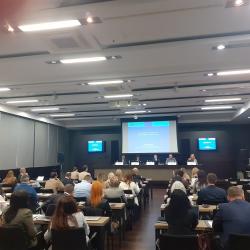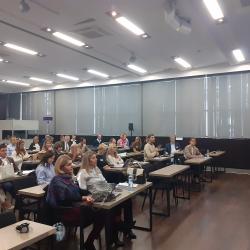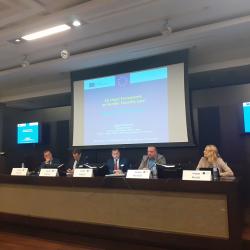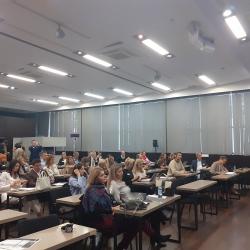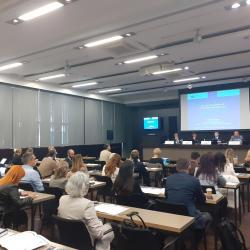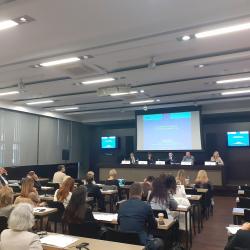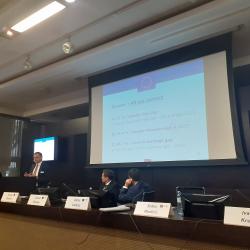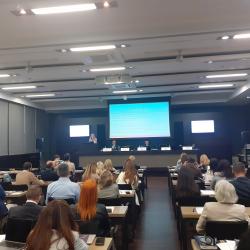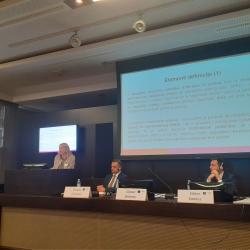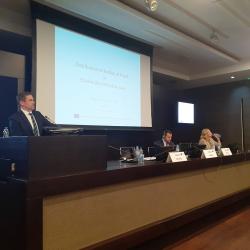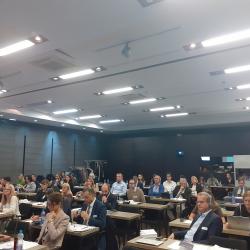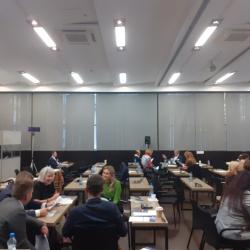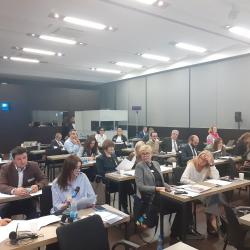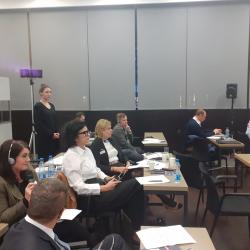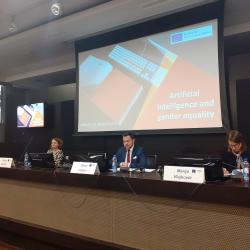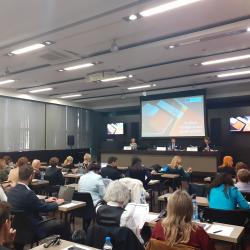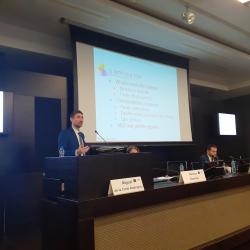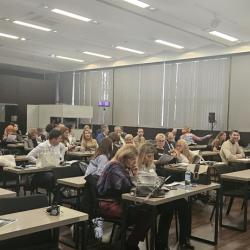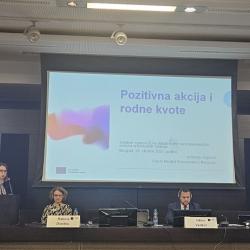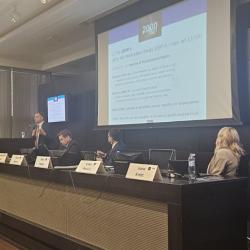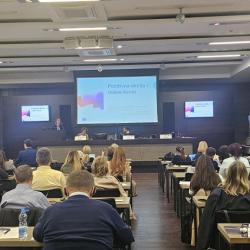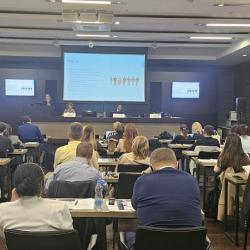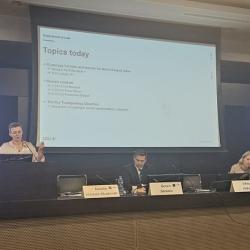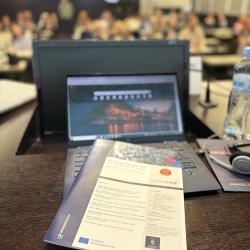"EU Law in the Field of Gender Equality" organized by the Judicial Academy and the Academy of European Law (ERA)
The Judicial Academy, in cooperation with the Academy of European Law (ERA), organized a two-day international seminar for judicial officials on the topic of "EU Law in the Field of Gender Equality" on 27 and 28 October in Belgrade. The seminar brought together 49 participants: judges and public prosecutors from all over Europe.
The seminar was opened by the Program Director of the Academy of European Law (ERA) Viktor Vadász and the Acting Director of the Judicial Academy Srđan Pavličić.
Mr. Vadász thanked the Judicial Academy for its long-standing successful cooperation and emphasized that the aim of this international seminar is to provide participants with an overview of EU legislation in the field of gender equality, as interpreted by the Court of Justice of the European Union in its extensive case law on the subject. Interaction among participants will be encouraged through time allocated for discussion and working groups in which their active participation will be required.
Mr. Pavličić emphasized that gender equality must be understood as a measure of social maturity, equality and justice. Without real equality between women and men in all professional and social segments, there is neither true development of society nor a true aspiration towards respecting the concept of the rule of law. Therefore, the task of holders of judicial functions, but also of other legal practitioners and members of the scientific community is not only to interpret and apply the norms that guarantee equality, but also to actively contribute to the culture of respect for the rule of human rights and the prohibition of any form of discrimination through their personal example, behavior and decisions.
The Judicial Academy has been paying special attention to this topic for many years, through trainings dedicated to protection from discrimination, the fight against domestic violence and gender-based violence, but also to understanding a gender-sensitive approach with a focus on problems in judicial practice and everyday work.
He emphasized that this is a unique opportunity to publicly thank the Academy of European Law for its cooperation to date and to point out that the long-standing partnership has enabled our judges and prosecutors to participate in training and study visits in various areas of EU law.
This cooperation has enabled us to ensure that the training we conduct is fully aligned with European standards, that our professional development curricula follow current trends in the practice of the European Court of Justice and the European Court of Human Rights, but also that our judges and prosecutors are part of the broader European community of legal practitioners in these areas.
The key topics covered at the international seminar were:
- The EU Legal Framework for Gender Equality Law – Historical Development and Overview
- Defining Key Concepts (Direct Discrimination; Indirect Discrimination; Harassment; Sexual Harassment)
- Proving Discrimination (Reversal of the Burden of Proof; How to Establish a Presumption of Discrimination: Examples and Case Law of the Court of Justice of the EU; Access to Evidence and Case Law of the Court of Justice of the EU on Disclosure of Information)
- Equal Pay for Work of Equal Value (Directive 2006/54/EC; Significant and Recent Case Law of the Court of Justice of the EU; New Pay Transparency Directive)
- Workshop: Case Study on Sex Discrimination
- Access to Evidence and Case Law of the Court of Justice of the EU on Disclosure of Information
- Artificial Intelligence and Gender Equality (Gender Bias in Recruitment and Selection Processes; How to Detect and Deal with Discrimination in the Context of artificial intelligence?)
- Affirmative action measures and gender quotas (Concept of affirmative action in EU law; Examples of affirmative action measures in the EU; Special case of quotas on company boards: Women on Boards Directive)
- Work-life balance: Directive 2019/1158 on work-life balance for parents and carers
- Combating gender-based violence in the EU (Istanbul Convention; Relevant ECtHR case law; Proposal for a directive on combating violence against women and domestic violence)
- The role of the national judge in the application of EU equality law (Application of EU law in domestic proceedings; Practical advice on submitting a request for a preliminary ruling)
The lecturers at the international seminar were:
- Miguel de la Corte Rodríguez, Social Security Inspector, Madrid; External Senior Research Fellow, Catholic University of Leuven
- Raluca Dimitriu, Professor of Labour Law, University of Economic Studies, Bucharest
- Fabio Filpo, Judicial Assistant, Court of Justice of the European Union, Luxembourg
- Ivana Krstić, Professor, Faculty of Law, University of Belgrade
- Álvaro Oliveira, Former Senior Legal Expert, European Commission, Brussels
- Goran Selanec, Judge, Constitutional Court of Croatia, Zagreb
- Natalie Videbæk Munkholm, Professor, University of Southern Denmark (SDU)
- Marija Vlajković, Assistant Professor, Faculty of Law, University of Belgrade
- Petra Volke, Judge, Higher Regional Court, Cologne

